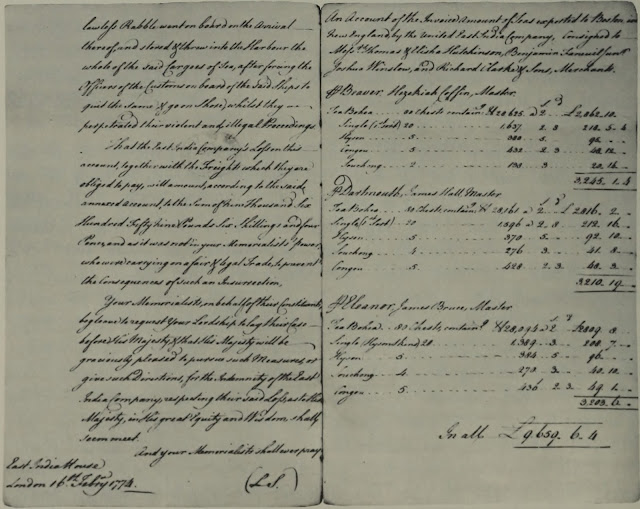The Tea Act: Full Text with Annotations
The Tea Act (13 Geo. 3, c. 44) On May 10, 1773 the so-called Tea Act received royal assent and became law. The following is the full text of the act, with annotations to provide further understanding. You can find the full text here as well. I have maintained the original spelling and punctuation, but have modernized capitalization. I have changed the emphasis of the original, so that the text is entirely in regular upright text, with the following exceptions: I have italicized the titles of acts and I have added bold text to highlight the key point of each section. My commentary is in blue text. First, a little background. At this time all tea consumed in Great Britain was being produced in China and the East India Company was the only entity allowed to legally import it from there. When they did they had to go straight to London with it and pay a 25% import duty. They then had to offer the tea for sale at a public auction (usually in small lots of a few chests at a time), where othe...


